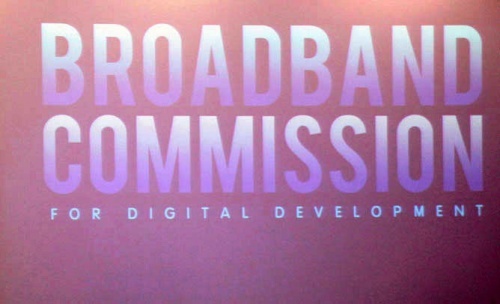
UN commission looks to governments and private industry to ensure that ½ or more of the developing world’s population is using broadband Internet by 2015, stressing the crucial role this plays for economic growth and job creation. “Broadband technologies are fundamentally transforming the way we live,” the Broadband Commission for Digital Development, set up last year by the UN Educational Scientific and Cultural Organization (UNESCO) and the UN International Telecommunications Union (ITU), said in issuing “The Broadband Challenge” at a leadership summit in Geneva.
Broadband as Instrument of Inclusion
“It is vital that no one be excluded from the new global knowledge societies we are building. We believe that communication is not just a human need – it is a right.”
The commission, comprising chief executives and industry leaders, senior policy-makers and government officials, international agencies, academia and development organizations, set a range of targets to be reached by 2015, ensuring that countries have a national broadband plan while making it affordable in developing countries through regulation and market forces so that it amounts to less than 5 per cent of average monthly income. Other goals aim to ensure that 40 per cent of households in developing countries have Internet access and that user penetration reaches 60 per cent worldwide with 50 per cent in developing countries and 15 per cent in least developed countries (LDCs) by the target date.
Carlos Slim & Commission Heads Combine Industry & Private Sector:
“These targets are ambitious but achievable, given the political will and commitment on the part of governments, working in partnership with the private sector:” ITU Secretary-General Hamadoun Touré, who serves as co-vice chair of the commission with UNESCO Director-General Irina Bokova. Rwandan President Paul Kagame and Mexican businessman Carlos Slim Helú, chief executive of Telmex and América Movíl, co-chair the body.
Obsolete & Obstructionist Regulation:
The Challenge urges governments not to limit market entry and tax services unnecessarily so that broadband can realize its full growth potential. “It is essential to review legislative and regulatory frameworks, many of which are inherited from the last century, to ensure the free and unhindered flow of information in the new virtual, hyper-connected world,” it reads, stressing the need to stimulate content production in local languages. (READ ARTICLE – “Internet Security, Openness & Privacy Forum Concludes:” -
diplomaticallyincorrect.org/films/blog_post/internet-security-openness-privacy-forum-concludes-by-ambassador-mo/35706 )
Citizens with Online Voice:
All citizens must be given a voice online, including disadvantaged or marginalized communities such as the elderly, the house-bound and those with special needs, low-skilled workers and the rural poor in agricultural communities, it adds, calling on world leaders and industry to promote information and communications technologies (ICT) education for women and youth.
“The benefits of broadband are profound – in opening up young minds to new horizons through educational technologies; in empowering women to expand their opportunities through genuine choices; in improving awareness of hygiene and health care; and in helping family breadwinners find work, a better salary or return on their goods. Through broadband, the provision of public services is transformed to make them global public goods for the global good. Greater access to the Internet and broadband applications and services help accelerate achievement of internationally-agreed development goals, including the Millennium Development Goals (MDGs): ” From Challenge.
Next Year Dubai to Host “ITU Telecom World”:
The launching of the Challenge coincided with the 40th anniversary meeting in Geneva of ITU Telecom World, attended by over 250 leaders from government, the private sector and the global technology community, with tens of thousands of people from around the world joining in the four-day event for the first time through a full range of connected technologies. Meanwhile, ITU Telecom Board Chairman Reza Jafari announced that Dubai had won the global bid to host ITU Telecom World 2012.
Mobile Phone Growth:
In a new mini-report, The World in 2011, ITU noted that ICT growth continues apace, with close to 6 billion mobile cellular subscriptions forecast by the end of 2011, and around 2.3 billion people using the Internet. Growth is fastest in developing nations, and among the young, with almost half the world’s online population now under 25 years old. (READ ARTICLE – “Mobile Phone Access for Poor People” -
diplomaticallyincorrect.org/films/blog_post/mobile-phone-access-for-poor-people-un-backed-program-by-ambassador-mo/32976 )
Internet Development Continues:
The developing world’s share of Internet users has grown from 44 per cent five years ago to 62 per cent today, while global Internet penetration has grown by over 50 per cent in three years, from 13 per cent in 2008 to 20 per cent in 2011. But the top broadband economies are all in Europe, Asia and the Pacific.
ARTICLE – “Internet Use Lags Cell Phone Use:” -http://diplomaticallyincorrecttv.com/films/blog_post/internet-use-lags-cell-phone-use-in-poorer-countries-by-susan/28055
By, Susan Sacirbey
Facebook – Become a Fan at “Diplomatically Incorrect”
Follow on Twitter@ DiplomaticallyX

